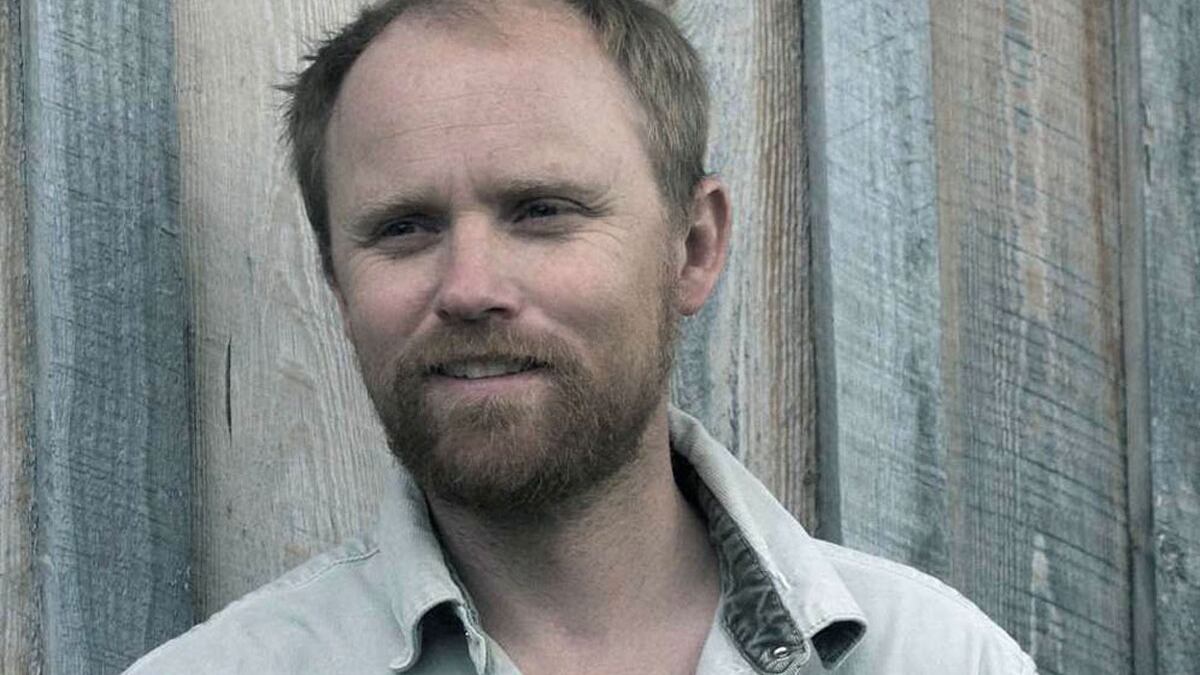Mark Sundeen has made a career out of people who'd rather not have a career anymore. From his 2000 book, Car Camping, to his New York Times best-selling The Man Who Quit Money in 2012, about a man who lives in a Utah cave, Sundeen has been obsessed with the various ways people get away from it all.
The Unsettlers (Riverhead Books, 336 pages, $26), his newest, has taken on both moral urgency and a bit of sadness. The book follows three families of homesteaders—Possibility Alliance ecotopians Ethan and Sarah Hughes, Detroit urban farmers Olivia Hubert and Greg Willerer, and ur-homesteaders Luci Brieger and Steve Elliott. We talked to Sundeen in advance of his appearance at Powell's Books on Feb. 21.
WW: Why did you write this book?
Mark Sundeen: I guess it started with total despair that I was complicit in my own destruction and loss of freedom. One example would be watching the banking scandal, and feeling so angry about the 1 percent and Wall Street, and then writing a monthly check for my mortgage—and thinking, I'm their customer as much as I hate them.
You can do that with fuel, with paying taxes on the war in Iraq. How can I live and not destroy myself? That led me to write The Man Who Quit Money—and that led me to this book, the question of how far can you take this, if you have children?
The book seems to show there's no easy way to opt out.
The working title had been Simple—and it came out so inaccurate I had to change it. We've created a society where it's easy and cheap to get the worst possible products. It's cheaper to drive a car than it is to take public transportation sometimes. It's cheaper to eat fast food than go to Whole Foods and cook from the ingredients.
It's crazy that having appliances and electricity and smartphones is the prerequisite for everyone—that having a piece of clothing not made in a sweatshop is a luxury. If you pay $200 for a handmade shirt made locally, it's decadent. But $50 to $75 a month for a phone plan is considered a requirement.
How did you meet the families you followed? Olivia Hubert, for example, is one of the very few black people involved in Detroit's urban gardening movement.
I thought I was going to write a book on preppers—people who are preparing for the apocalypse, people who have a bunker filled with guns, gold and silver. But it was pretty much all white people in rural America. The fear was always about cities—"inner city" is always code for talking about black people.
But this collapse has already occurred in places like Detroit, and the people who are victims aren't white people with permaculture gardens. It's poor people of color. Meeting Olivia was a gift from God. She was such a unique and wonderful person. I expected someone who grew up in Detroit to be jaded and hard. Olivia had maintained this love of beautiful things, and she had this sense of humor. It was so unexpected to me.
With the Possibility Alliance, the problems weren't subsistence—it was personality.
That's certainly part of a long tradition of idealistic communities in America, dating back to Emerson and Thoreau. When you have such an individualistic society, it's hard for people to let go and believe in consensus-building.
Did you come away more pessimistic? More hopeful?
I came away much more hopeful, actually—hopeful because I was inspired by what these three families are doing even if it's not easy. They're not any happier than anybody else, but they've succeeded in breaking free of that cycle. At the end, it was clear to me that not everyone needs to take their path and become a farmer. These people had chosen what they loved to do. It's not like they're wearing a hair shirt.
Does the current political situation make the book seem naive, or more relevant?
It looks like these people were prophetic. I thought these people might be looked at as Chicken Littles. You know, "We live in petro state, an unjust government controlled by oil companies." That might have seemed extreme before. But we do live in a petro state. We need to resist it—not just protest and call our congressmen, but find little acts of resistance every day.
Some would say that by opting out, these people have refused to engage with the culture.
These people are completely engaged. There are 1,500 visitors a year at the Possibility Alliance. At Standing Rock, I met six people from the PA who'd been trained there. They were taking what they learned and putting that stuff up against the barricades.
How does it feel now, looking back at the Standing Rock victory after Trump's executive order to resume the pipeline?
I'm really sad. I got to know a lot of people up there who were a lot more committed than me. This is not about a pipeline, this about a threat to existence. That's why they're standing their ground. I just feel grief. But I also feel like the movement that rose up will continue. Gandhi said full effort is full victory—I've never seen effort like this.
With the Trump administration, is Standing Rock a harbinger of what's to come?
I hope so. [But] I can't get on board with "I'm glad that the world is terrible because it's making us better people." We're in the midst of a historical tragedy. People will be hurt and people will die. No one will look back and say, "Oh, it was great."
Let's say you'd live like one of the families in this book. Which one would you choose?
In a sense, Detroit. It was so exciting. There wasn't that sense of being in the middle of nowhere, being in isolation. You could have that homesteading life and be in the city. But realistically, I'm not going to move to Detroit and start farming.
GO: Mark Sundeen will appear at Powell's City of Books, 1001 W Burnside St., powells.com, on Tuesday, Feb. 21. 7:30 pm. Free.

